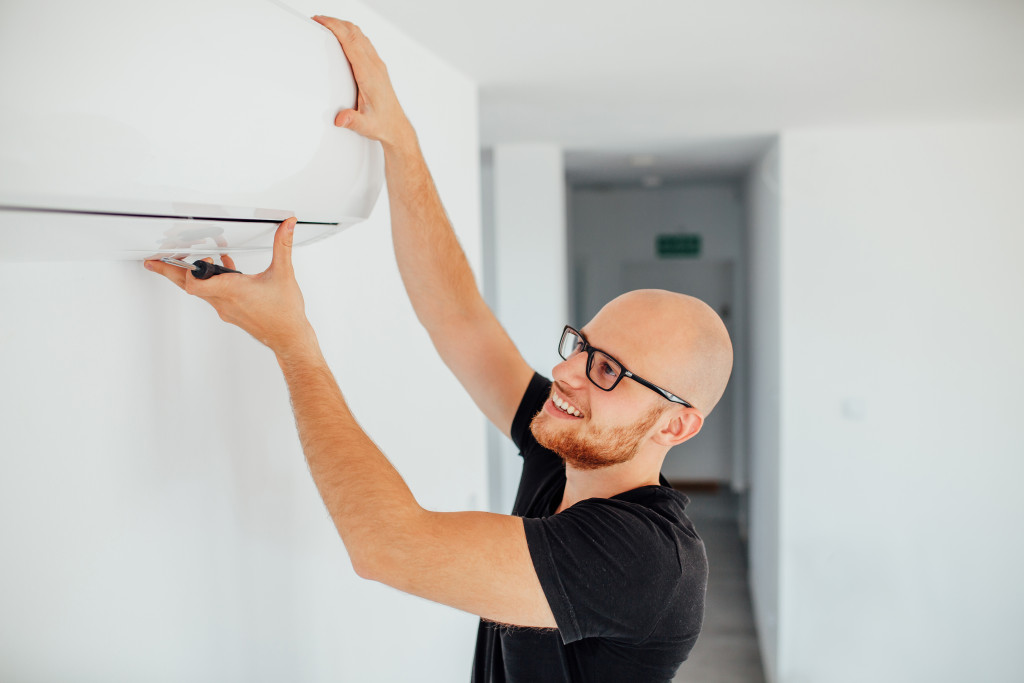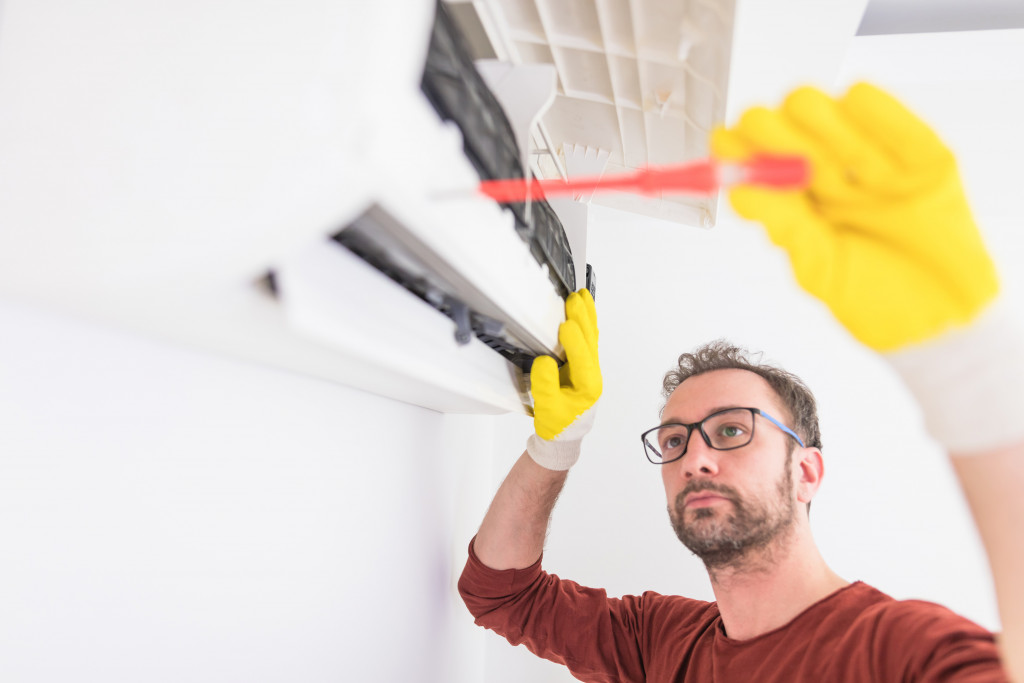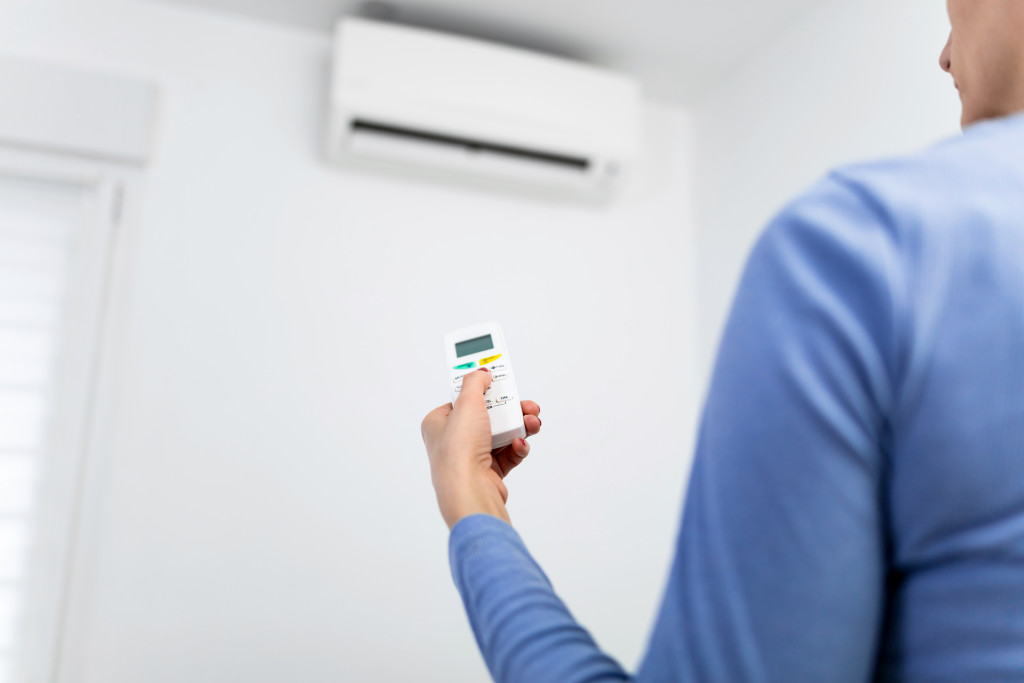- Indoor air quality significantly influences property value and can affect a building’s structural integrity.
- An Indoor Air Quality (IAQ) assessment identifies potential air pollutants and their sources for effective resolution.
- Implementing strategies like proper ventilation, air filtration systems, and humidity control can significantly improve indoor air quality.
- Expert air conditioning services can provide comprehensive plans for maintaining optimal indoor air quality.
- Improved IAQ enhances property marketability, attracting health-conscious buyers willing to invest in a healthier living environment.
As a property owner, you must always consider improving your home’s value and quality. One crucial aspect homeowners should focus on is the air quality inside their space.
When considering the value of a property, several factors come into play. Some of these factors are location, square footage, the number of bedrooms, bathrooms, and the overall condition of the building. However, property owners must recognize that indoor air quality is a vital factor that can significantly affect the value of their property.
Ignoring air quality can lead to physical and financial consequences, such as respiratory infections, structural damage over time, and a reduction in property value. Thus, improving air quality cannot be overstated.
Thus, improving indoor air quality can significantly elevate the value of your property. This blog post delves into the importance of air improvement and offers strategies to accomplish it.
Assessing Indoor Air Quality
Before taking steps toward air improvement, homeowners must assess their indoor air quality. Carrying out an Indoor Air Quality (IAQ) assessment helps to identify air quality issues, their sources and, in turn, mitigate risks. IAQ assessments analyze components such as humidity levels, airborne pollutants and allergens, and odor inside the property.
Conducting an IAQ Assessment
Carrying out an IAQ assessment involves contacting licensed and accredited professionals who specialize in indoor air quality. These experts evaluate a property’s current indoor air quality and, using the latest technologies and techniques can identify the source of any potential problems.
Identifying Common Air Pollutants and Contaminants
During an IAQ assessment, inspectors will evaluate a home’s indoor air quality for common pollutants and contaminants such as volatile organic compounds (VOCs), mold and mildew, and carbon monoxide.
These pollutants can cause serious health problems, such as headaches, respiratory problems, and even death. It is thus vital to identify these toxins to improve air quality and save lives.
Recognizing IAQ Issues and Potential Risks
Once potential risks are identified, it is crucial to promptly recognize and address any IAQ issues. IAQ issues are not just harmful; they can also lead to structural weaknesses that can deplete the value of your property. Fixing poor air quality problems sets your home toward healthier living and a more secure future.

Strategies for Air Improvement
To improve indoor air quality, several strategies must be put in place, some of which include:
Proper Ventilation and Air Circulation
Adequate ventilation is essential for good indoor air quality and makes the impact of any indoor pollutants less noticeable.
Air Filtration and Purification Systems
High-efficiency filters, ventilation fans and purifiers, and air cleaners help to remove harmful pollutants and keep indoor air clean.
Humidity Control and Moisture Management
Excessive humidity and moisture can create conditions where mold and other biological pollutants thrive. Using dehumidifiers and fixing leaks can control indoor humidity levels and reduce the chances of mold buildup.
Working with Air Condition Services
To ensure that the IAQ of the property is improved, it is essential to seek the services of an expert air conditioning service. They have the expertise and equipment to analyze indoor air quality and recommend the best action to improve it. They can also work with the property owner to create a comprehensive plan for maintaining optimal air quality.
The Impact on Property Value
Many studies have shown that better IAQ directly translates to higher property values. According to a survey by The National Association of Home Builders, over 90% of home buyers are willing to pay more for homes with better IAQ. Another study by the University of California found that improving IAQ can increase a home’s value by up to 15%.
How Improved IAQ Enhances Property Marketability
Improved IAQ makes properties more marketable because it is a desirable feature that attracts potential buyers and renters. This is especially true for health-conscious individuals willing to pay a premium to live in a healthier environment.
Better IAQ also reduces the potential for health problems, such as respiratory conditions, which may lower a property’s marketability.
Attracting Health-Conscious Buyers and Renters
Investing in air improvement is essential for attracting health-conscious buyers and renters. As people become more aware of the health hazards that poor IAQ can cause, they are more likely to prioritize indoor air quality when choosing a property to live in. Making air improvement a primary selling point can appeal to those willing to invest in a healthy lifestyle.

Several key factors, including indoor air quality, determine a property’s value. Improve indoor air quality, and your property value improves as well. Proper ventilation, air filtration and purification systems, humidity control, and managing indoor air pollution are some of the strategies to improve indoor air quality.
By taking these steps, homeowners can rest assured that they provide a safe, healthy living environment for their families and protect their investments.

